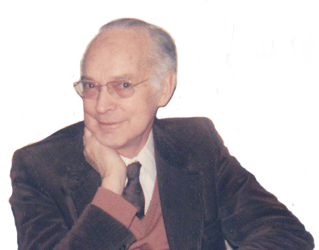 I’d like to mark the passing of Fidel Castro with a respectful salutation on behalf of my late father, Thomas G. Buchanan Jr., and share a little information with you about some of the interactions between the two of them.
I’d like to mark the passing of Fidel Castro with a respectful salutation on behalf of my late father, Thomas G. Buchanan Jr., and share a little information with you about some of the interactions between the two of them.
In 1966, my father traveled to Havana “at the invitation of the Cuban Government at a time when the U.S. Government regarded such visits as illegal.” He spent three weeks there doing research for a book about CIA activities in Cuba, including several assassination attempts on the lives of Osvaldo Dorticós and Fidel Castro. According to what my father wrote in his book Big Brother, one of the thwarted CIA assassination attempts on Fidel Castro presented similarities with the strategy my father believed was used to carry out the Kennedy assassination.
My father’s information about the assassination attempts, gathered from Cuban sources, was confirmed a decade later by the Church Committee’s investigation into illegal activities by U.S. government intelligence agencies. At the time, however, it would have been news to the public—a damaging revelation of what the CIA was up to in Cuba.
But the book never got published, suffering the same fate as many of my father’s other writings after his book on Kennedy: the editor in Amsterdam, who had already signed a contract for the book, at first failed to acknowledge receipt of the manuscript and then finally, after a year of more attempts at contact from my father and the involvement of a lawyer, agreed to pay for it but not to publish it after all. The literary agent in New York, who had begged my father enthusiastically to write more books like Who Killed Kennedy?, suddenly told him, without explanation, that she would not be handling the book on Cuba after all, and returned the manuscript by non-airmail post, meaning it took 2 months to arrive by boat. Without photocopy technology, my father relied on returned manuscripts for submitting his work to new potential takers. Otherwise, it required re-typing the several hundred pages of the manuscript manually on the typewriter. These delays and about-faces were common when it came to my father’s political writings.
My father personally met with Fidel Castro during that visit to Havana, and I believe (although I can’t be sure) that there may be an interview transcript buried somewhere among the many papers he left behind, along with the book manuscript itself. Unfortunately, neither has yet been unearthed, so I can’t share my father’s own words about the meeting, nor Fidel Castro’s as might be revealed by a transcript.
But my father’s relationship with Fidel Castro did not stop there, and the quotes I do have to share come from letters my father wrote to me near the end of his life.
He had been diagnosed with multiple myeloma in 1984, shortly after his book Big Brother was published. After several different medications, the specialist decided it was time to start treating his myeloma with interferon. Unfortunately, the treatment had to be postponed because the drug was no longer being delivered to France from the U.S., and French hospitals had not yet found an alternative supplier. The specialist suggested that, if my father “had any influence in any of the half-dozen countries where it is made (including Cuba),” he should try to have them ship it from there.
“So,” my father wrote to me, “[wife] and I went to the Cuban Embassy where, as soon as they found out who I was, they said that they had read my books and articles for many years and, if they could help me in any way, they would do their best to send me the medicine I needed. They sent a cable to Havana the same day, and only one week later the Cuban authorities sent them an initial supply of interferon by diplomatic plane. The embassy immediately delivered it to the Paris hospital, Villejuif, where it was marked for my exclusive use.”
They promised, as well, to send more whenever more was needed.
That was in 1985. In February 1986, my father received a little more information about how it came to be that he wasn’t having to pay for the medicine sent by the Cubans:
“A few weeks ago, [wife] and I were invited for lunch by the Ambassador of Cuba. To my astonishment and delight, he turned out to be the man who was my best friend during my three-week visit to Havana in 1966. He said he had talked to Castro personally about my need for interferon, and that Castro had sent me his ‘salutations’. So that explains the gift of interferon. I read in Newsweek not long ago that a year’s treatment with interferon costs $50,000. Isn’t that miraculous? I don’t see how I could possibly pay for what I have already received, and there is no way to tell how long it will continue.”
I’m not sure how long the interferon treatment lasted after that, but as far as I know, my father never had to pay for it.
So, thank you, Fidel Castro, for having helped my father reduce his suffering and keep his illness at bay for as long as was possible. Whether it was a personal favor or just part of the Cuban willingness to extend a helping hand when it comes to healthcare, the gift of medicine and the salutations were very much appreciated.
